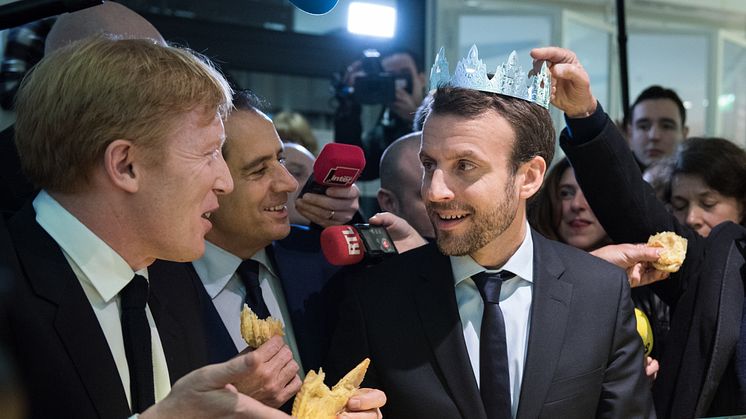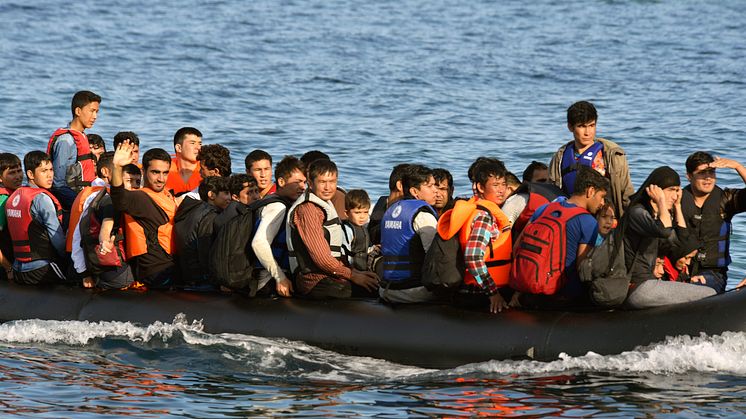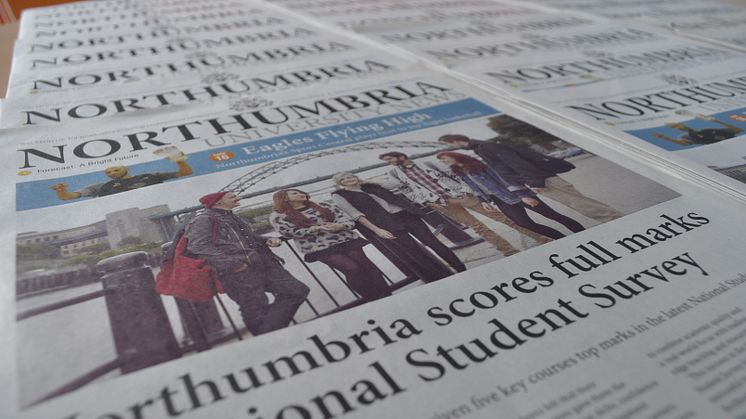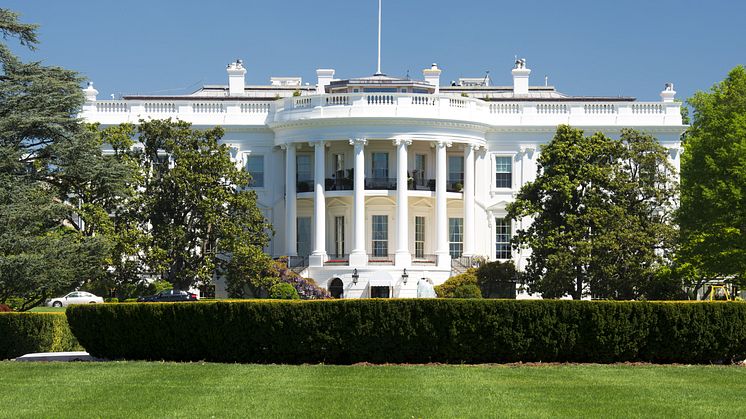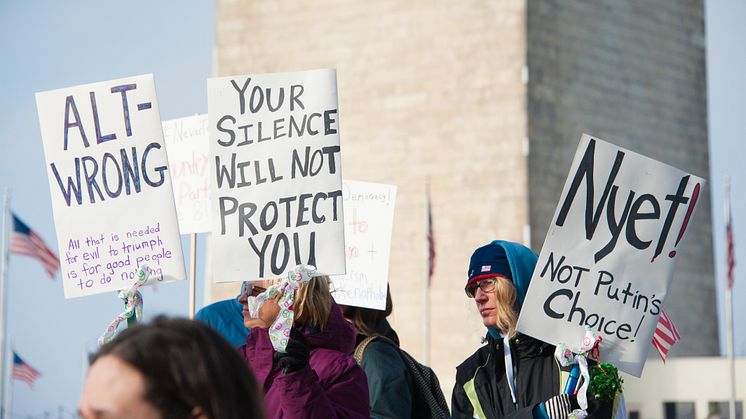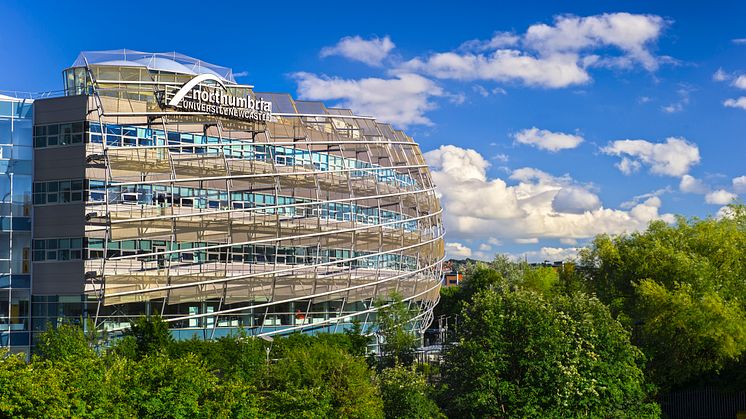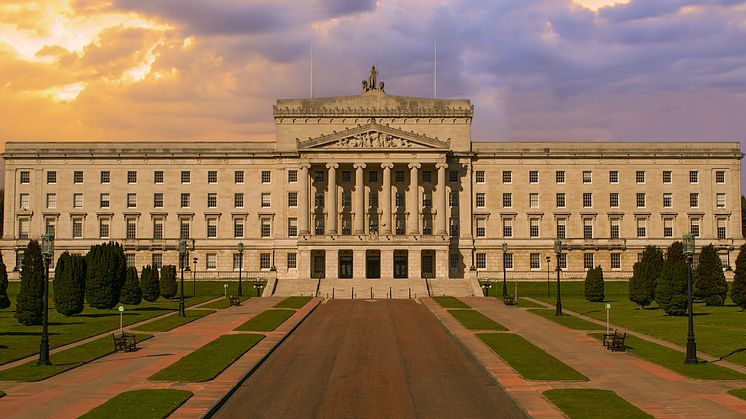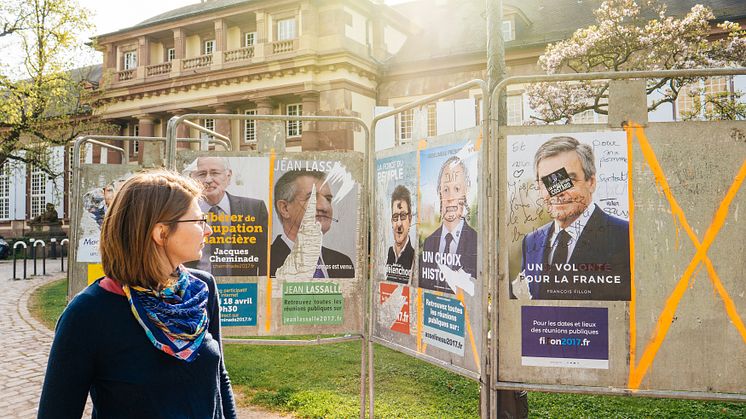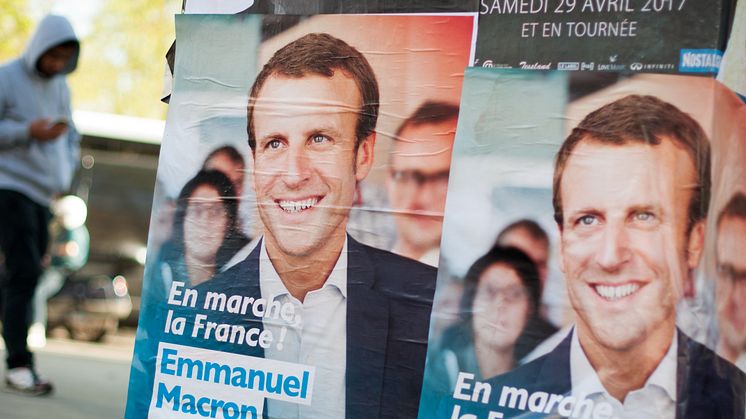
Press release -
EXPERT COMMENT: Macron’s challenges go way beyond winning the election
Ariane Bogain, Senior Lecturer in French and Politics at Northumbria University, writes about obstacles facing Emmanuel Macron in the 2017 French presidential elections.
With days to go before the first round of the 2017 French presidential election, Emmanuel Macron, the frontrunner since March, has seen his commanding lead cut sharply.
Whilst still ahead in the latest polls, on a par with far-right candidate Marine Le Pen, only four points now separate him from the right-wing François Fillon and Jean-Luc Mélenchon, the hard left candidate who has been rising fast in the last few weeks.
With one-third of voters still undecided and with the usual margin of error inherent to any poll, this rollercoaster of an election is clearly heading down to the wire. Can Macron hold on to his lead and reach the second round?
Macron certainly has strengths, but they might well turn into weaknesses. The reason for his appeal largely lies in the political positioning of his competitors. Unlike in previous elections, the main candidates have not sought to woo moderate voters. Instead, they are representing the ‘hard’ version of their party, leaving open a wide boulevard in the middle.
By claiming to be beyond the right and the left, by having a programme designed to appeal, broadly speaking, from the centre-right all the way to the right wing of the Socialist Party, and by being the only candidate from the centre, Macron has gained supremacy over the vast expanse of land between Fillon on the Republican right and Benoît Hamon on the Socialist left.
As the only openly pro-European candidate and with a programme mixing social liberalism, social democracy and moderate economic liberalism, Macron also stands starkly apart.
 Emmanuel Macron/ Shutterstock
Emmanuel Macron/ Shutterstock
However, in a country where the left and the right are still strong markers, Macron’s pretension of being neither has left him vulnerable to accusations of being ideologically flimsy and lacking coherence. Macron’s first presidential challenge, to reach the second round, has therefore become much tougher and no one at this stage can predict whether he will be able to clear this hurdle.
Assuming that Macron does succeed in the first round and then goes on to win the second round, his next challenge ‒ gathering a parliamentary majority ‒ will be no less daunting. To have any real power, a French President needs the support of a majority of members of the National Assembly. Hence the customary appeal of all newly-elected presidents to ask the French electorate to do the ‘right’ thing and vote for ‘their’ candidates in the subsequent parliamentary election. But for Macron, who has no established party, this is likely to prove a huge challenge. His movement, ‘En Marche’, has no experience of fighting what is, in effect, 577 micro-elections in each parliamentary constituency.
When you consider that centrist François Bayrou in 2007 and Marine Le Pen in 2012 each won 19% of the vote in presidential election but only managed to win three and two MPs respectively, the scale of the task Macron is faced with becomes clearer. It is true that the French electorate does tend to do the ‘right thing’ ‒ most famously in 1981, after François Mitterrand became the first Socialist president of the Fifth Republic, much to the bemusement of political commentators who thought a majority was out of his reach.
So Macron does have a point in saying that “if the French want […] change, they will vote for me and will confirm it in the parliamentary elections“. But in all previous elections the president has had a strong and well-organised party or coalition of parties behind him, which is not the case with Macron.
 French presidential election official campaign flyers/ Shutterstock
French presidential election official campaign flyers/ Shutterstock
If Macron fails to gain a majority, he will have to engineer one ‒ either through a coalition or through ad hoc pacts on any given law. Considering that many politicians will undoubtedly see Macron’s presidency as an opportunity for their own political careers, such a majority might well be engineered, but solidity and loyalty will not be guaranteed. Macron might well end up in the situation of two former presidents, Valéry Giscard d’Estaing and Mitterrand, who for parts of their presidencies lacked the full support of a majority and had their ability to run the country curtailed.
Assuming that the majority challenge is passed, the final one will be for Macron to implement his new style of presidency, which he has dubbed ‘Jupiterian’. He summarised this slightly cryptic conception of power as “a President who presides […], a Government that governs“. By focusing on setting out long-term objectives in six areas (growth, taxation, pensions, education, security, cleaner politics), whilst leaving the government to deal with the day-to-day running of the country, Macron intends to break away from the ‘hyper-presidentialisation’ that was the theory of Nicolas Sarkozy and the practice of the current president, François Hollande.
Macron finds the habit of both men to comment on every event as demeaning to the role of president. So it becomes clear that he is seeking to forge a certain mystique around the Presidency through a less involved and more aloof way of presiding. In an age of constant media attention, Macron’s ability to transform the idea of the presidency may well turn out to be his stiffest challenge.
If Macron does succeed in clearing all the obstacles facing him, he will truly deserve his moniker of the ‘wonder child’ of French politics. But with such a tight finish to the presidential race, it would take a very brave person to bet on any of this happening.
And yet, who would bet against this topsy-turvy campaign to deliver such a final twist?
This article was originally published by Europe's World. Read the original article here.
Topics
Northumbria is a research-rich, business-focused, professional university with a global reputation for academic excellence. To find out more about our courses go to www.northumbria.ac.uk
If you have a media enquiry please contact our Media and Communications team at media.communications@northumbria.ac.uk or call 0191 227 4571.







